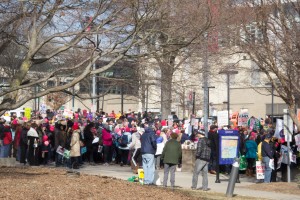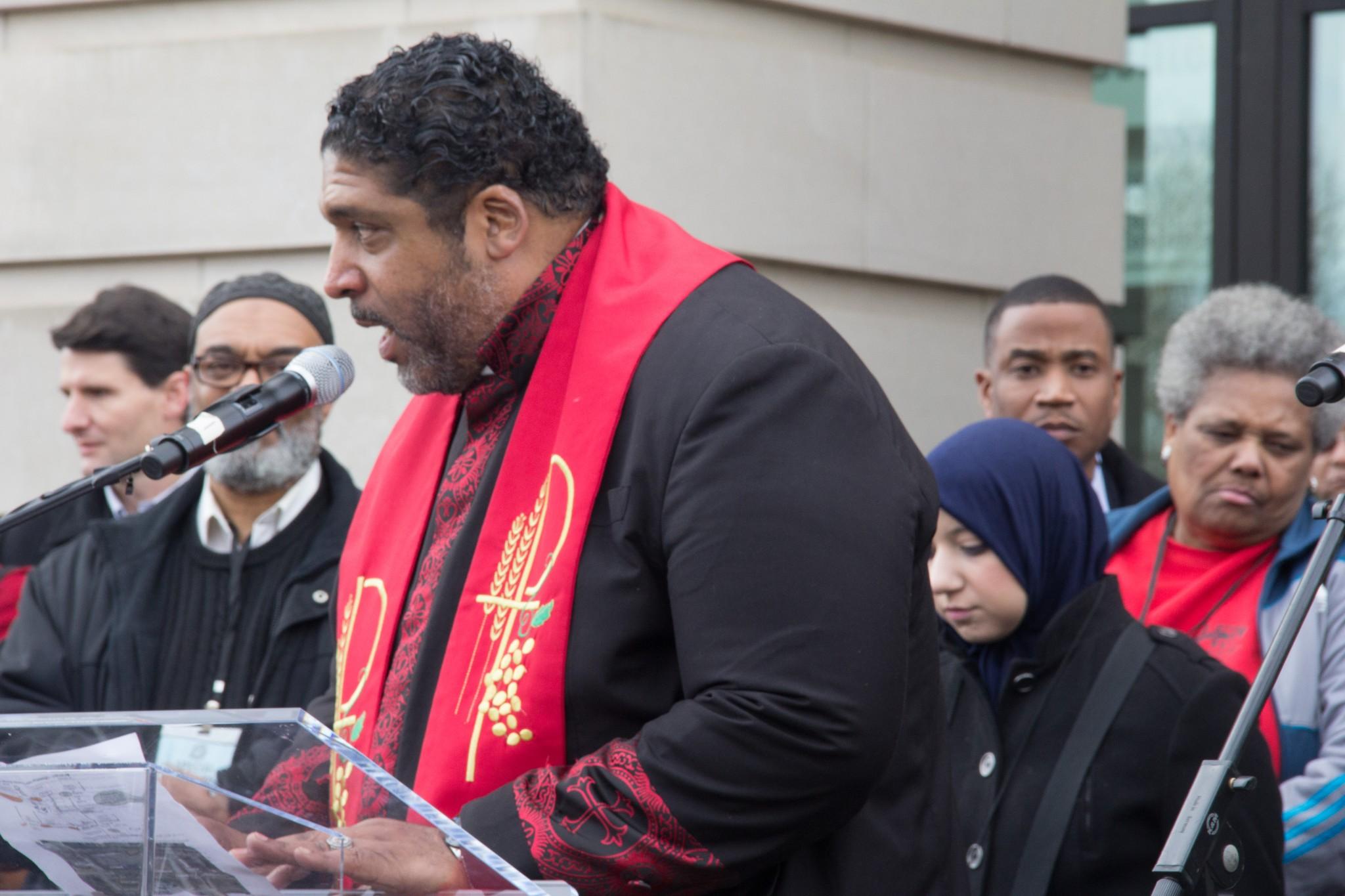“Forward together. Not one step back.” That was the mantra of Saturday’s Moral March in Raleigh, where roughly 80,000 people marched in support of all forms of social justice.
The march is considered to be the largest civil rights movement since the historic marches on Selma, Alabama in 1965.
“To me, it’s a reminder that we need to push back against regressive legislation,” said Mary Lyons, senior art education major and secretary of the Watauga County branch of the National Association for the Advancement of Colored People who attended the march. “Our representatives are trying to go back in time, and this is a push to show that we aren’t OK with it.”

Watauga County’s branch of the NAACP joined 150 others and another 180 organizations in for the march.
Marjorie McKinney, the branch’s founder, said roughly 50 people from the Watauga County branch participated in the march. Appalachian State University’s own NAACP group and organizations such as the College Democrats chapter were also in attendance.
The march encompassed numerous forms of social justice including the protection of voting rights, education reform, prison reform, union rights, increased medicare for the poor, combating Islamophobia and more.
Irv Joyner, law professor at North Carolina Central University and protester said that during the last two election cycles, African Americans and racial minorities have outvoted whites at the North Carolina polls.
“As a result of [the election cycles,] the Republicans who are presently serving in the North Carolina General Assembly have enacted legislation which has created new, racially gerrymandered voting districts, and enacted voter suppression laws which are designed once again to take away [minorities’] right to vote,” Joyner said.
Farris Barakat, the brother of Deah Barakat – one of the victim’s of the Chapel Hill shooting last week – spoke alongside Pierre Lacy, the brother of Lennon Lacy, whose death last year is thought by many to have been a lynching.
“We have to work to bring peace and justice to this earth,” Barakat told the crowds.
Despite the march being a response to legislation enacted by the North Carolina Republican Party, the Rev. William Barber II said the problems transcend politics.
“We’ve got, not a right problem or a left problem, not a conservative problem or a liberal problem,” Barber said. “We’ve got a heart problem. When money and greed and political hubris and pride and ego and beating your opponent become more important that working together to uplift humanity, we’ve got a heart problem.”
The march began in front of Shaw University and ended in front of the legislative building.
Lyons said she believes the march had an elevated importance because of the tragedies that have happened over the past year to minorities, such as the deaths of Mike Brown, Eric Garner, Tamir Rice, Yusor Mohammad Abu-Salha, Razan Mohammad Abu-Salha and Deah Barakat.
“The real power of the Moral Movement is that it’s so inclusive,” Lyons said. “There is a shared struggle of all marginalized people. Whether you’re marginalized for your race, faith, gender identity, etc., a loss for one group of people is a loss for all marginalized people.”
Despite the hardships and tragedies the march highlighted, many believe that the march exemplifies hope for a brighter future.
“Without struggle, there is no progress,” Joyner said. “Forward together, not one step back.”
STORY: Thomas Culkin, News Reporter

